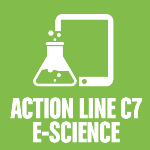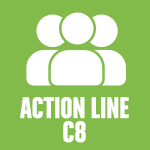AI for Good - Indicators, Trends, Opportunities & Impacts
International Telecommunication Union (ITU) / FG-AI4H secretariat
Session 316
The session will explore the evolution of 4th Industrial Revolution to Society 5.0 and the 5th Machine Age: Surprising indicators, Trends, Opportunities, Impacts -- Shaping all of our Futures with a spotlight on AI with examples and demonstrations.
What's upcoming from the 5th Machine Age, what are the leading technologies and game changers for 2019, what technologies will be adopted in three years, what are the job and skill trends, what are the top innovators saying, how will this impact our lives and enterprises in the immediate future? The talk will cross several dimensions of innovation and change with a particular focus on AI.
The session will also explore how practical applications of AI can be used to accelerate progress towards the Sustainable Development Goals, concluding with an overview of the upcoming AI for Good Global Summit.
Speakers/Panellists
Stephen Ibaraki, Social Entrepreneur, Futurist, Venture Capitalist
Fred Werner, Head, Strategic Engagement Division, Telecommunication Standardization Bureau, ITU
Bastiaan Quast, ITU
Session's link to WSIS Action Lines
-
 C1. The role of public governance authorities and all stakeholders in the promotion of ICTs for development
C1. The role of public governance authorities and all stakeholders in the promotion of ICTs for development
-
 C2. Information and communication infrastructure
C2. Information and communication infrastructure
-
 C3. Access to information and knowledge
C3. Access to information and knowledge
-
 C4. Capacity building
C4. Capacity building
-
 C5. Building confidence and security in the use of ICTs
C5. Building confidence and security in the use of ICTs
-
 C6. Enabling environment
C6. Enabling environment
-
 C7. ICT Applications: E-government
C7. ICT Applications: E-government
-
 C7. ICT Applications: E-business
C7. ICT Applications: E-business
-
 C7. ICT Applications: E-learning
C7. ICT Applications: E-learning
-
 C7. ICT Applications: E-health
C7. ICT Applications: E-health
-
 C7. ICT Applications: E-employment
C7. ICT Applications: E-employment
-
 C7. ICT Applications: E-environment
C7. ICT Applications: E-environment
-
 C7. ICT Applications: E-agriculture
C7. ICT Applications: E-agriculture
-
 C7. ICT Applications: E-science
C7. ICT Applications: E-science
-
 C8. Cultural diversity and identity, linguistic diversity and local content
C8. Cultural diversity and identity, linguistic diversity and local content
-
 C9. Media
C9. Media
-
 C10. Ethical dimensions of the Information Society
C10. Ethical dimensions of the Information Society
-
 C11. International and regional cooperation
C11. International and regional cooperation
This is a cross-cutting topic and the themes explored in this session will be essential to the implementation of all the WSIS Action Lines
Session's link to Sustainable Development Process
-
 Goal 1: End poverty in all its forms everywhere
Goal 1: End poverty in all its forms everywhere
-
 Goal 2: End hunger, achieve food security and improved nutrition and promote sustainable agriculture
Goal 2: End hunger, achieve food security and improved nutrition and promote sustainable agriculture
-
 Goal 3: Ensure healthy lives and promote well-being for all
Goal 3: Ensure healthy lives and promote well-being for all
-
 Goal 4: Ensure inclusive and equitable quality education and promote lifelong learning opportunities for all
Goal 4: Ensure inclusive and equitable quality education and promote lifelong learning opportunities for all
-
 Goal 5: Achieve gender equality and empower all women and girls
Goal 5: Achieve gender equality and empower all women and girls
-
 Goal 6: Ensure access to water and sanitation for all
Goal 6: Ensure access to water and sanitation for all
-
 Goal 7: Ensure access to affordable, reliable, sustainable and modern energy for all
Goal 7: Ensure access to affordable, reliable, sustainable and modern energy for all
-
 Goal 8: Promote inclusive and sustainable economic growth, employment and decent work for all
Goal 8: Promote inclusive and sustainable economic growth, employment and decent work for all
-
 Goal 9: Build resilient infrastructure, promote sustainable industrialization and foster innovation
Goal 9: Build resilient infrastructure, promote sustainable industrialization and foster innovation
-
 Goal 10: Reduce inequality within and among countries
Goal 10: Reduce inequality within and among countries
-
 Goal 11: Make cities inclusive, safe, resilient and sustainable
Goal 11: Make cities inclusive, safe, resilient and sustainable
-
 Goal 12: Ensure sustainable consumption and production patterns
Goal 12: Ensure sustainable consumption and production patterns
-
 Goal 13: Take urgent action to combat climate change and its impacts
Goal 13: Take urgent action to combat climate change and its impacts
-
 Goal 14: Conserve and sustainably use the oceans, seas and marine resources
Goal 14: Conserve and sustainably use the oceans, seas and marine resources
-
 Goal 15: Sustainably manage forests, combat desertification, halt and reverse land degradation, halt biodiversity loss
Goal 15: Sustainably manage forests, combat desertification, halt and reverse land degradation, halt biodiversity loss
-
 Goal 16: Promote just, peaceful and inclusive societies
Goal 16: Promote just, peaceful and inclusive societies
-
 Goal 17: Revitalize the global partnership for sustainable development
Goal 17: Revitalize the global partnership for sustainable development
AI is expected to play a critical role in accelerating progress towards each one of the 17 SDGs. It has the potential to help address many of humanity’s most critical social, economic and environmental issues.